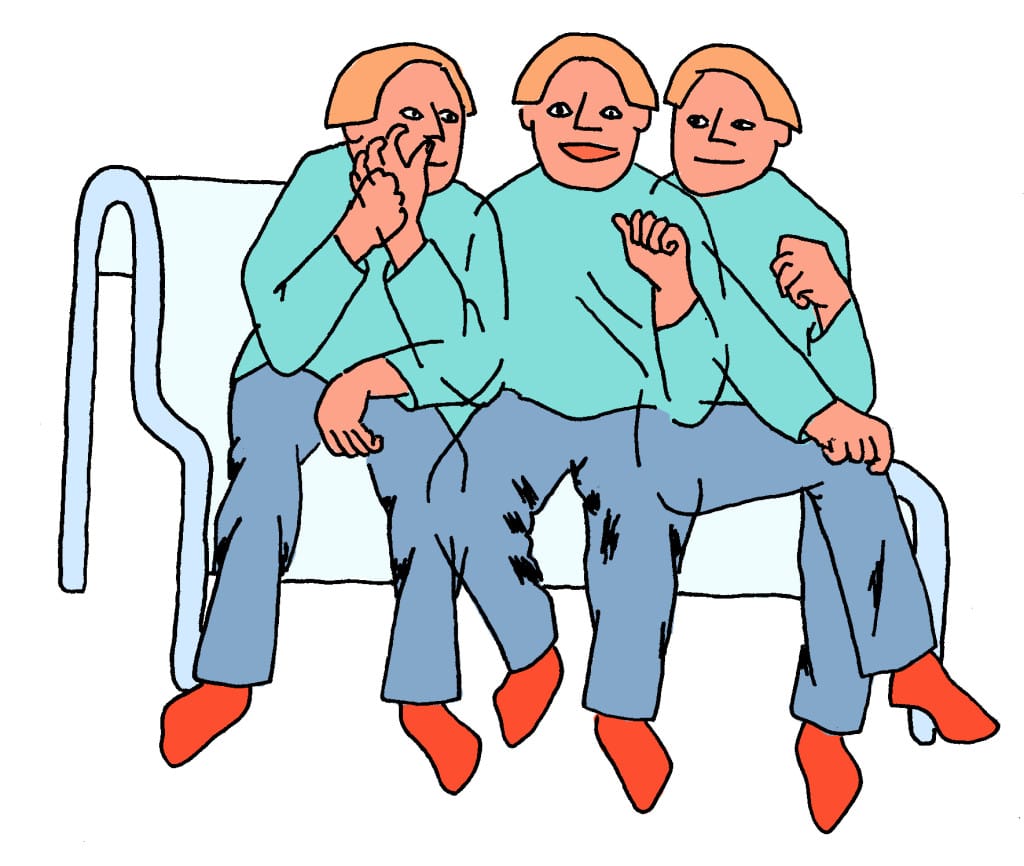In a psychotic state, everyday thoughts become confused and do not make sense. Some believe that others can influence their thoughts, that they can influence other people’s thoughts, or that everyone else can read their thoughts.

The Greek philosopher Aristotle once said that thinking is talking to oneself. Thoughts are our most personal possession, but where do they come from? If you are sitting and thinking about something and notice that thoughts suddenly occur to you or that after a while you are sitting and thinking about things “you hadn’t planned on thinking about”: where do these thoughts come from? Is there a kind of production of thoughts that you do not control or that comes from an unknown side of yourself? Who thinks the thoughts that suddenly appear, is it “you” or another side of you? Such reflections are completely natural and have occupied philosophers for centuries. When a person is not particularly stressed and feels confident in himself and his own feelings and has good relations with others, such reflections will not lead to particular worries or problems.
But when people become severely stressed or feel they have lost control over their own “I-boundaries”, they can begin to muse over these things. Some “stare” at their own thoughts and have a strange experience of them not being their own. Others experience having thoughts that they don’t want to or “aren’t supposed to” think, which can be repulsive thoughts or forbidden thoughts about sexual or violent things that they simply do not wish to think. If a person first begins to have such feelings regarding their own thinking, it is a short step to thinking that he has thoughts that are not his own. These thoughts can be perceived as coming from other people, or from God or the Devil. Some people have a sense that others are stealing or implanting thoughts, and when such perceptions persist over time, they will often lead to the establishment of delusions that help to explain the odd perceptions.
These thought disorders result in the person having difficulty speaking rationally, participating in a conversation or remembering things. All his thoughts are muddled. Some people can become so preoccupied with a thought, to the exclusion of others, or of minute details, that they are unable to see things as a whole.
Difficulties concentrating can easily be explained by the person being fearful, depressed or stressed for other reasons.